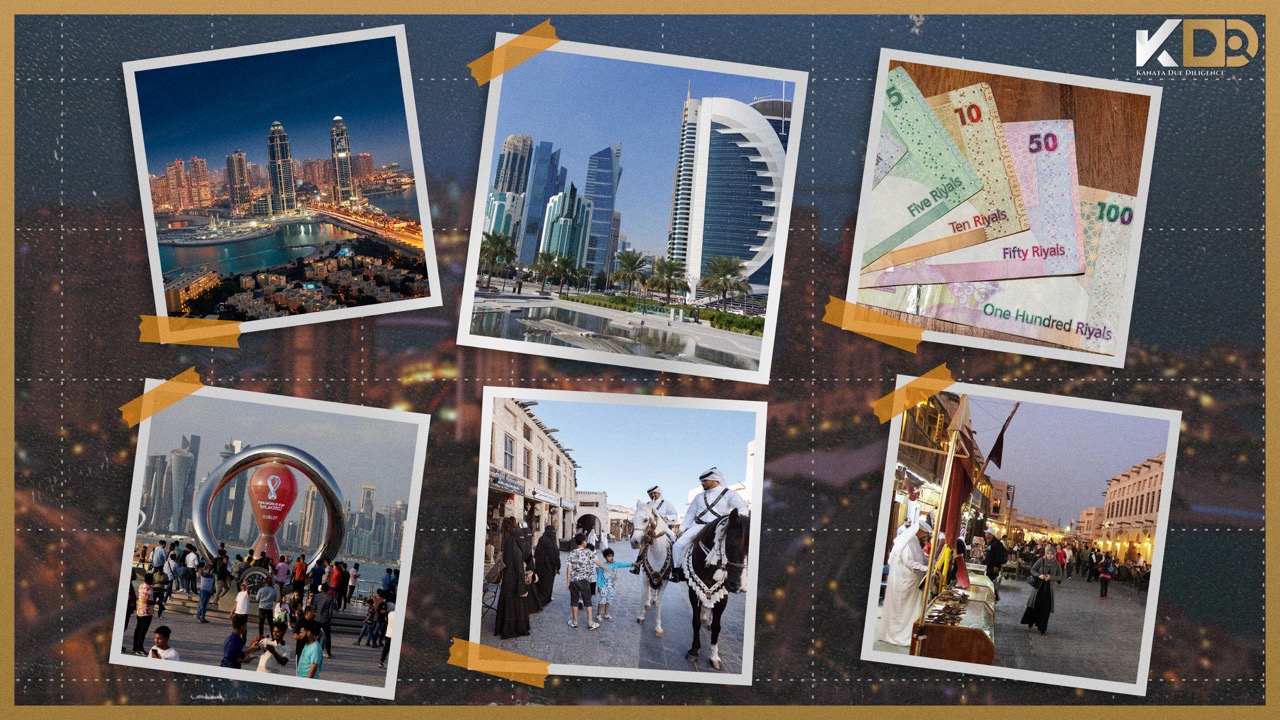Qatar: A Peninsula of Prosperity and Global Influence

Qatar, officially known as the State of Qatar, is a small yet influential country located on the northeastern coast of the Arabian Peninsula. Renowned for its economic prosperity, strategic initiatives, and cultural developments, Qatar has emerged as a key player on the global stage.
Geographical Significance: Situated on a small peninsula in the Arabian Gulf, Qatar shares borders with only Saudi Arabia, and its coast is lapped by the Persian Gulf. The nation’s strategic location has made it a crucial hub for international trade and diplomacy.
Cultural Fusion and Language: Qatar’s cultural identity reflects a harmonious blend of tradition and modernity. Arabic is the official language, and Islamic traditions shape the societal fabric. However, Qatar’s openness to the world is evident in its cosmopolitan cities like Doha, where various cultures coexist.
Economic Prosperity and Diversification: Qatar’s economic success is primarily driven by its vast natural gas reserves, making it one of the wealthiest nations globally. The government’s forward-thinking policies have focused on economic diversification, with substantial investments in sectors such as finance, real estate, and infrastructure.
Global Influence through Energy: As a leading exporter of liquefied natural gas (LNG), Qatar holds a strategic position in the global energy market. The country’s ability to leverage its energy resources has not only fueled its economic growth but has also enabled it to play a significant role in shaping global energy dynamics.
Architectural Marvels and Cultural Developments: Qatar’s skyline is adorned with architectural marvels, symbolizing the nation’s commitment to modernization. The iconic structures include the Burj Qatar, the Aspire Tower, and the Museum of Islamic Art. Additionally, Qatar has invested in cultural institutions, hosting events like the Qatar World Cup 2022, showcasing its dedication to cultural and sporting advancements.
Societal Harmony and Vision 2030: Qatar has fostered societal harmony by providing a high standard of living for its residents. The country’s Vision 2030 outlines ambitious plans for sustainable development, focusing on economic diversification, infrastructure enhancement, and social progress.
Caution and Regional Dynamics: While Qatar has enjoyed relative stability, caution is advised due to regional geopolitical dynamics. The nation has faced diplomatic challenges, including a diplomatic rift with neighboring Gulf countries in 2017. However, Qatar’s resilience and diplomatic efforts have allowed it to navigate such challenges.
Mapping the Peninsula of Progress: Exploring Qatar’s map reveals the strategic layout of its cities, key infrastructure, and its proximity to key regional players. The map provides context to Qatar’s geographic position and its role in regional geopolitics.
In conclusion, Qatar stands as a peninsula of prosperity and global influence, guided by a vision for sustainable development. Its ability to balance tradition with modernity, leverage its energy resources, and invest in cultural and economic diversification positions Qatar as a dynamic and influential player in the Middle East.
Leave a Reply